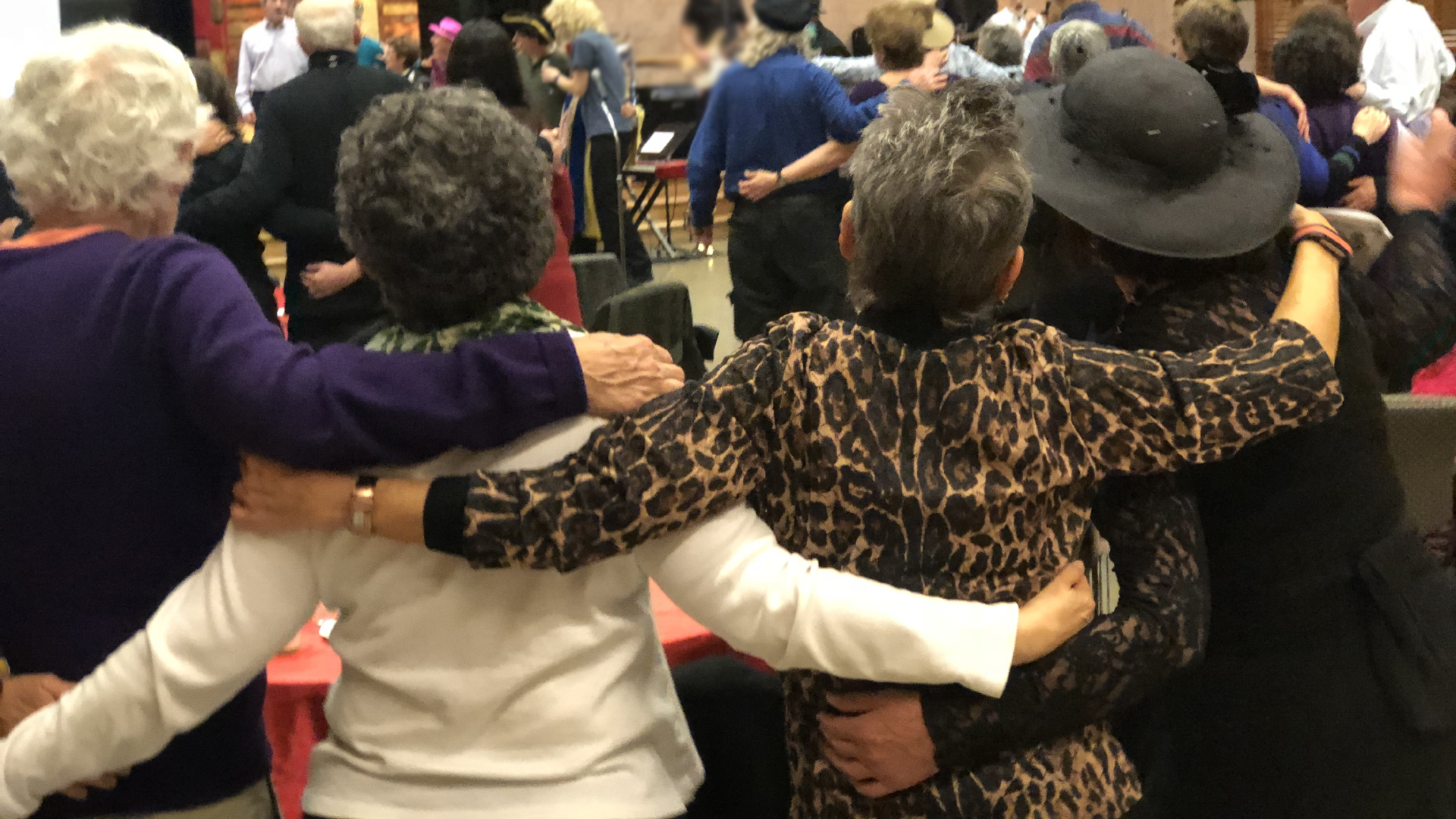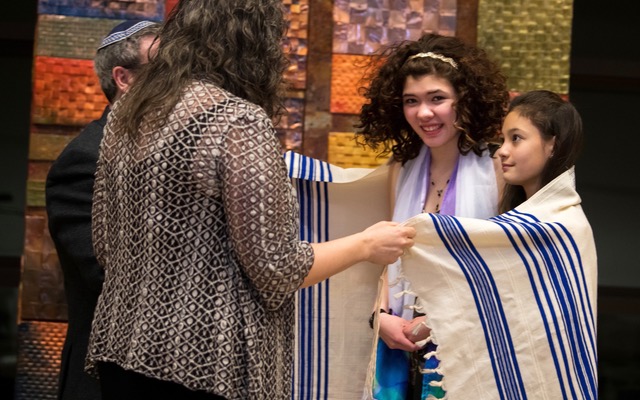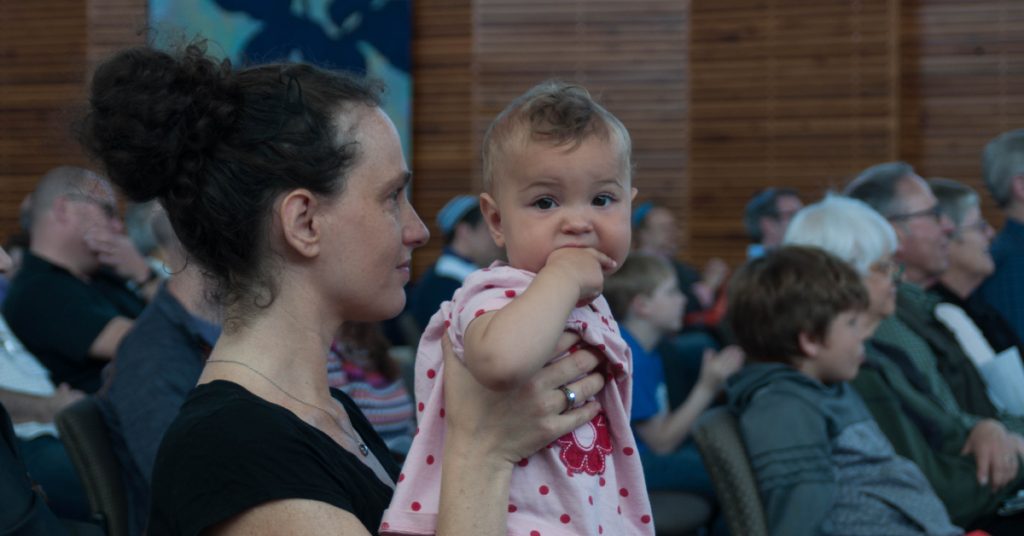About Reconstructing Judaism
How do we do Jewish?
Reconstructionist Judaism is both deeply rooted in Jewish traditions and boldly relevant to the complexity and plurality of the times in which we live. We balance customs and long-observed traditions with the needs of contemporary Jews today. Core to Reconstructionism is the belief that Judaism is the evolving religious civilization of the Jewish people; such a civilization contains ritual, music, text, art, history, sociology, food, literature, politics, and most importantly, Jewish Community.

What do Reconstructionist Services Feel Like?
Our services can feel like a mosaic – sung and chanted Hebrew, English readings and poetry, new melodies from around the world, folksy and familiar tunes, and the integration of social and political issues into our liturgy. We often have a discussion rather than a sermon, and participation is a key element. We hope people will “come as they are,” and feel that our rituals speak to the real moments in which we find ourselves. We welcome everyone to bring their full selves to shul – Jewish or not – as we seek meaning, comfort, motivation and connection.

About Reconstructing Judaism
Reconstructing Judaism is the national Reconstructionist movement which includes both the congregational arm of our movement, and the Reconstructionist Rabbinical College, the training institution, and is associated with the Reconstructionist Rabbinical Association, the professional association. JRC has been an affiliate of Reconstructing Judaism (and its preceding organizations) since our inception in 1964.

The People Who Brought You the Bat Mitzvah!

How is a Reconstructionist Congregation Different?

Are you a Reconstructionist and you didn’t know?
You’re in good company. Many of our members come to JRC because they know a member, or because they experience a service or ritual at JRC that “feels right.” Many of our members are seeking a community that engages their adult social, communal and political selves, while also accepting a wide range of observances. We start where we are – looking at the reality of our lives, and integrating the Jewish practices and tools that support and move us. Everyone is both a teacher and a learner, and questions are more the norm than answers.
We focus on making sure that our congregation feels like home for everyone – not a home in which everyone necessarily agrees with one another, but a home where everyone can find themselves reflected in who we are. Some people haven’t been in a synagogue since their bar mitzvah. Some are used to Shabbat services every week. Some can’t read Hebrew, some can’t sing, some aren’t sure if they believe in God, some wonder about their politics and whether they’ll be welcomed. Some people aren’t Jewish, but are part of a Jewish family or exploring. Some wonder whether they’ll see other people who look like them or their families. Some people are cynical. Some people are hopeful. All of these people are real members, and perhaps you’ll find your people here too.
Where Did Reconstructionist Judaism come from?
We are the smallest, but perhaps the boldest movement in the Jewish landscape. Reconstructionist Judaism is an American Judaism that evolved toward the end of the 19th century. Its founder, Rabbi Mordecai Kaplan, was a European-ordained orthodox rabbi who taught at the Conservative seminary and was a prolific writer and thinker along contemporary secular sociologists and philosophers. Reconstructionist Judaism evolved as an approach to Judaism that engaged intellectual realism and humanitarianism, while maintaining the essences of Jewish traditions. Egalitarianism, democracy, participation, values-centered decision making, and innovation are all pillars of our movement. “The past has a vote, but not a veto” is a favorite “bumper sticker,” which strives to preserve the essence and importance of the past, but that does not prevent us from innovating or changing practices that are no longer relevant. We often reconstruct the meaning and shape of a ritual, sometimes adapting what it looks like or what it means to make it relevant for today’s Jews. We create liturgical innovations to make sure that we can say what we mean, and mean what we say in prayer and in philosophy.
